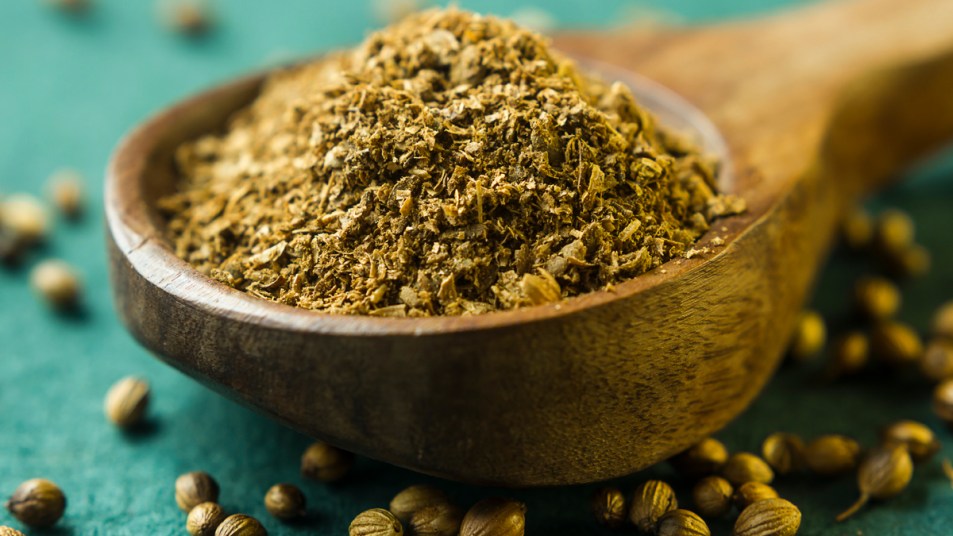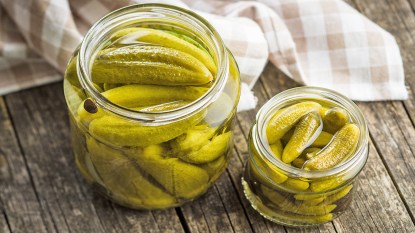Lower Blood Sugar, Boost Heart Health, and Ward Off Signs of Aging With This Scrumptious Spice

No matter what I’m cooking, there’s one spice I reach for more than the rest. Nope, I’m not talking about salt, but the savory and slightly citrusy flavor you get from ground coriander seeds. After adding it to so many of my meals, I decided to see if there’s any health benefits of coriander on top of the taste I love — and it turns out there’s a ton!
First, let’s clear up what coriander actually is. The word refers to both the seeds and plant that we most commonly know as cilantro, but the spice you pickup at grocery stores is made from grinding up the seeds rather than the leafs.
According to research, one major perk of sprinkling coriander onto your meals is lowering blood sugar. This is thanks to the spice’s ability to promote enzyme activity that helps our bodies naturally remove the sugar from our blood.
In one animal study, extract from coriander seeds was able to decrease blood sugar levels as effectively as Glibenclamide, a common prescription given to those with type 2 diabetes. We aren’t saying you should swap out your Rx, but if you do have blood sugar problems, it might be worth talking to your doctor about incorporating more coriander into your diet.
Another heart-healthy benefit found in a 2008 study showed coriander significantly lowering LDL (bad) cholesterol and increasing HDL (good) cholesterol. Research from 2011 backed this up by observing parts of the world where spices like coriander are used in meals more often, or those following the Mediterranean diet, tend to report fewer cases of heart disease.
Coriander is also chock full of several anti-inflammatory antioxidants, including terpinene, quercetin, and tocopherols. These help with warding off cancer and brain fog, plus boosting the immune system. Another antioxidant perk? Slowing down signs of skin aging and healing skin damage.
Last, but certainly not least, coriander was shown in a 2014 study to help maintain gut health with a compound called dodecenal which fights bad bacteria — like Salmonella, the most common cause of food poisoning, and the bacteria responsible for UTIs. Another study also showed coriander eased abdominal pain, bloating, and other uncomfortable stomach symptoms.
Despite all of those benefits, you might be someone with the genetic predisposition that makes cilantro leaves taste soapy and think you can’t enjoy the seeds. They’re actually pretty different! As I mentioned before, the ground up seeds have a citrusy taste that can add a fresh flavor to any savory meal you’re making. It also pairs well with turmeric, cumin, and other spices frequently found in Indian cooking.
If you’re still wary of trying the spice on your food and getting a mouthful of soapy flavor or you just want to make sure you get enough, you can try taking coriander supplements, like Dr. Wakde’s Coriander Capsules ($30.76, Amazon). But, as always, you should talk to your doctor before adding any supplements to your daily life.
Add a few shakes of ground coriander to your next meal and you might find yourself just as hooked — and feeling healthier while you’re at it.













